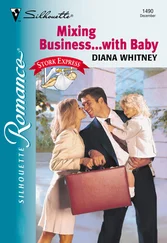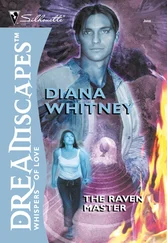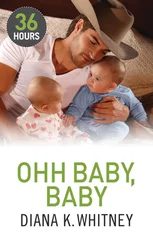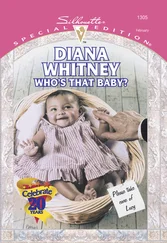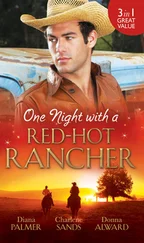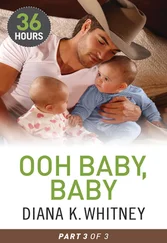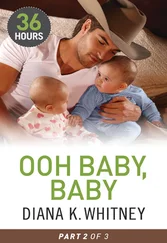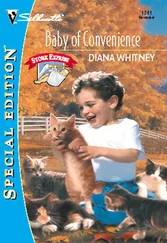“You should sue,” Bobbi announced, nodding so vigorously that her spectacles slipped down her nose. “I know a lawyer—”
“No.”
“But the county was negligent! Honest to God, Ceejz, I called the shelter six times a day for two solid weeks after Rags ran away, and every dadgummed time they said no animal of that description had been picked up. They lied, they screwed up, they gave your dog away, for Pete’s sake! Someone has to be held accountable for that.”
Heaving a sigh, C.J. set the orange juice down. “No lawyers, no lawsuits. It’s over. I’ve made my decision. Rags is happy, well cared for, and loved. Please, can’t we drop it now? This entire subject is...painful.”
Bobbi’s face crumpled in despair. “Oh, hon—” She stepped forward, stopped when C.J. raised a palm to signal that she was perfectly fine and didn’t wish to be fussed over.
Of course, C.J. wasn’t perfectly fine and Bobbi clearly knew that. She also understood C.J.’s aversion to being the subject of worry or concern, and respected her silent request even if her furrowed brow displayed disagreement with it.
Frustrated, Bobbi straightened her glasses, heaved a deflating sigh. “Look, I have to go. The magazine is sending me out to interview an over-the-hill jockey who’s accusing some racing association of age discrimination.”
CJ. nodded without comment, took a bite of sandwich while her roommate hustled around the cluttered room gathering her briefcase, pocket recorder, camera and other tools of the journalistic trade.
Pausing at the front door, Bobbi shouldered the briefcase strap, raked red-tipped fingers through her thick tangle of long black hair and regarded her friend with blatant concern. “Are you going to be all right, Ceejz? I can reschedule this thing—”
“I’m fine,” C.J. assured her. “You go, do your job.” She enforced that edict with the brightest smile she could muster, and tipped the orange juice glass in salute. “Knock ’em dead, tiger.”
Bobbi responded with a thin nod, an even thinner smile, then slipped out the door.
Alone now, C.J. slumped against the kitchen counter, forcing herself to finish the tasteless sandwich. Eating was more ritual than pleasure. Her body required food whether she wanted it or not. At the moment, her stomach twisted, her head hurt and she was angry with herself for being so emotional.
The reunion with her beloved pet had been bittersweet. Although deeply grateful that Rags was alive and happy, the emptiness in her heart seemed suddenly overwhelming again. For the past six years that crafty canine had been her constant companion, from romps on the ski slope to ocean surfing excursions, and had even shared a hot-air balloon trip she and Bobbi had taken to research one of her roommate’s magazine articles.
Rags was the only creature on earth who accepted C.J.’s quirks without question. He never criticized, never furrowed a doggy brow with worry, never gave scolded warnings or repeated medication reminders. He was thirty fur-covered pounds of unconditional love and acceptance that C.J. desperately needed.
But little Lissa needed it more.
The Matthews child had put a mirror to C.J.’s own lonely childhood, a poignant reminder of how much a friend—even a shaggy canine friend—means to a sick and lonely little girl.
Since C.J. wouldn‘t—couldn’t—take that away, she set about fulfilling her promise to forward Rags’s possessions. Retrieving a box from her bedroom closet, she examined the contents. Tiny tags, still snugged on Rags’s collar ring; his old training collar and leash; special ointment for the skin condition that flared occasionally, along with a folder of medical records, all meticulously maintained from the day she’d brought him home as a feisty ten-week-old pup; his favorite chew toys, the plastic Frisbee he adored; a tiny wet suit for beach excursions, a warm saddle coat for snow trips; and of course, his beloved skateboard.
There were photographs, too, a record of their time together, of the adventures they’d shared. But the pictures were hers, and hers alone. All she had left were those images, and the memories they evoked. Good memories. Joyful memories.
Memories of mountain hikes and walks in the park, of the reassuring bed lump that always crowded her legs, of the rushed vet visit when a wasp had stung his tongue.
Memories of warm fur and a cold nose and wet, doggy kisses that made her sputter and laugh. Memories of friendship. Memories of love.
C.J. remembered it all, relived it all. And she smiled through her tears, content in the knowledge that there would be more memories of friendship and love created between a big-hearted pooch and the lonely little girl who needed him.
Chapter Two
“I can have the revisions done by the end of the week.” Shifting the telephone, Richard spread the curled blueprint over his drafting table, readjusted the corner tape to hold it flat. “The changes you’re suggesting shouldn’t have more than a minimal impact on cost—”
“Daddy!”
“But I’ll run the new specs through the computer and give you an update—”
“Daa-ddy!”
“In a day or so.” Richard sighed as Lissa stomped into the secluded den that served as his architectural office. “Listen, Jay, can I get back to you on this? Thanks.”
“Ragsy won’t play with me,” Lissa announced as soon as he’d cradled the receiver. “He won’t play dress-up or chase his ball or do anything ’cept sit on the back of Gramps’s chair with that dumb Frisbee in his mouth and look out the window.”
Richard swiveled on his drafting stool, and squeezed the back of his aching neck. As he opened his mouth to speak, one of a half-dozen antique clocks displayed throughout the office began to chime the half hour. Seconds later another chimed in, then another. The sound soothed Richard, offered a moment of calm retreat. He loved clocks, particularly the old ones, with rich embellishments, gilded etchings and intricate carvings crafted by long-ago artists who took pride in their work. His collection of such treasures was a source of great joy to him, and he could spend hours restoring a neglected piece to its original luster.
After a few seconds, the clocks fell silent, and Richard returned his attention to the sulking child beside his drafting stool. His voice was firm, but not particularly convincing. “Lissa, you know you’re not supposed to interrupt me while I’m working.”
She poked her lip out, folded her arms. “I want to play with Rags.”
Heaving a frustrated sigh, Richard motioned his daughter over, pulled her into his lap. “Rags doesn’t want to play right now, punkin. He’s feeling sad.”
Lissa’s lip quivered, then clamped in anger. “It’s that mean lady’s fault. Gramps even said so.”
With some effort, Richard kept an impassive expression. Thompson McCade was rich, powerful, smoothly controlling and as devoted to his grandchild as was the man’s timid, beleaguered wife. Richard considered his father-in-law a tyrannical bully, but had always kept that opinion to himself out of respect for his wife’s memory, and because he didn’t want to alienate Lissa from her grandparents’ love and attention.
Now, as always, Richard tried to straddle a fine line between supporting McCade’s inappropriate blame-mongering, and openly contradicting his daughter’s beloved Gramps. “I can understand your grandfather’s concern, punkin. He hates to see you upset. But you have to remember that Gramps hasn’t met Ms. Moray, so he’s really not in a position to comment on her motives. I believe she only wants what’s best for Rags, and for you, too.”
“I don’t care. I hate her.”
“That’s not a nice thing to say.”
“Well, I do hate her, I do. She’s trying to steal my dog and I just wish she’d dry up and die.”
Читать дальше

